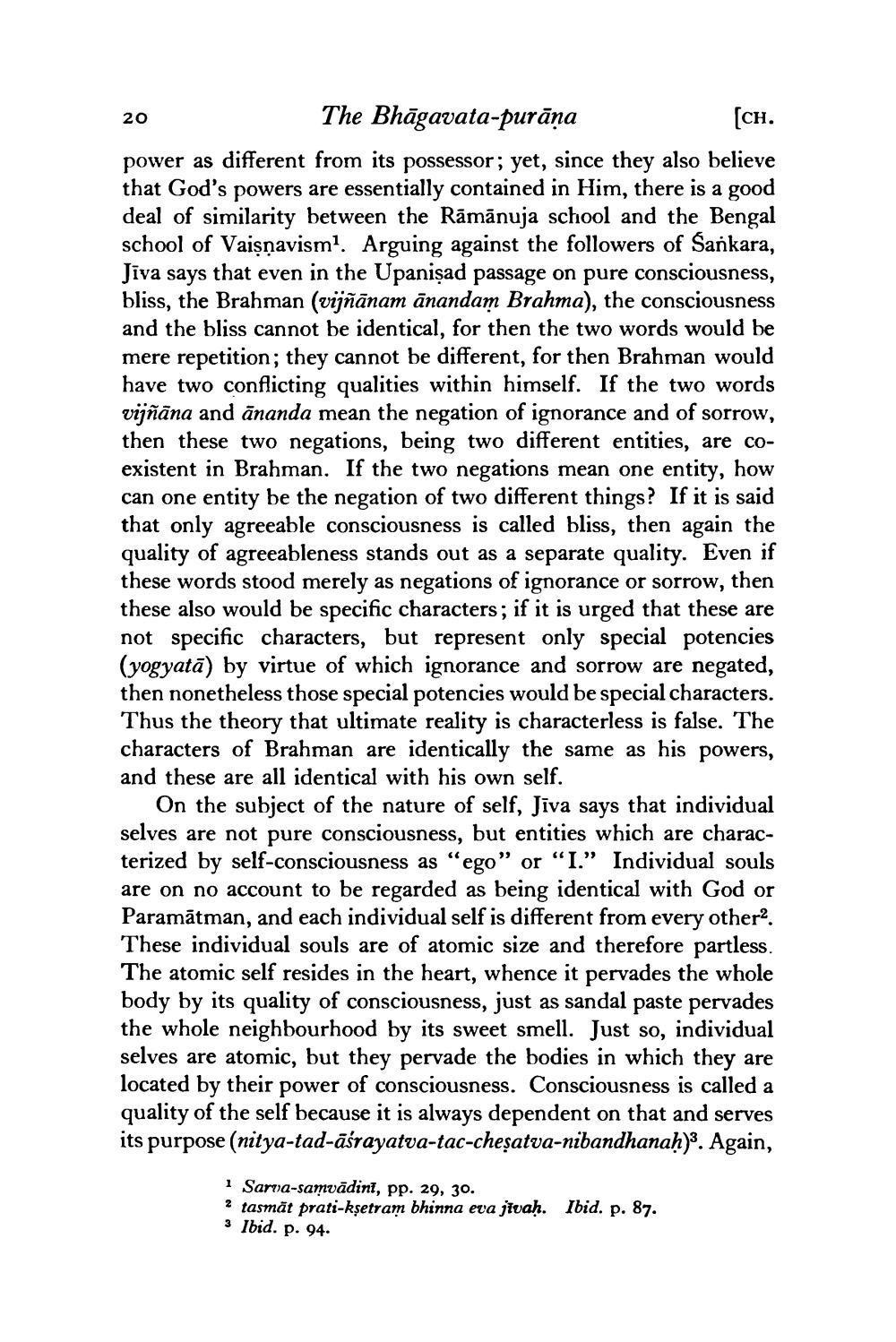________________
The Bhagavata-purāņa
[CH.
power as different from its possessor; yet, since they also believe that God's powers are essentially contained in Him, there is a good deal of similarity between the Rāmānuja school and the Bengal school of Vaiṣṇavism1. Arguing against the followers of Sankara, Jiva says that even in the Upanisad passage on pure consciousness, bliss, the Brahman (vijñānam ānandam Brahma), the consciousness and the bliss cannot be identical, for then the two words would be mere repetition; they cannot be different, for then Brahman would have two conflicting qualities within himself. If the two words vijñāna and ānanda mean the negation of ignorance and of sorrow, then these two negations, being two different entities, are coexistent in Brahman. If the two negations mean one entity, how can one entity be the negation of two different things? If it is said that only agreeable consciousness is called bliss, then again the quality of agreeableness stands out as a separate quality. Even if these words stood merely as negations of ignorance or sorrow, then these also would be specific characters; if it is urged that these are not specific characters, but represent only special potencies (yogyata) by virtue of which ignorance and sorrow are negated, then nonetheless those special potencies would be special characters. Thus the theory that ultimate reality is characterless is false. The characters of Brahman are identically the same as his powers, and these are all identical with his own self.
20
On the subject of the nature of self, Jīva says that individual selves are not pure consciousness, but entities which are characterized by self-consciousness as "ego" or "I." Individual souls are on no account to be regarded as being identical with God or Paramātman, and each individual self is different from every other2. These individual souls are of atomic size and therefore partless. The atomic self resides in the heart, whence it pervades the whole body by its quality of consciousness, just as sandal paste pervades the whole neighbourhood by its sweet smell. Just so, individual selves are atomic, but they pervade the bodies in which they are located by their power of consciousness. Consciousness is called a quality of the self because it is always dependent on that and serves its purpose (nitya-tad-āśrayatva-tac-cheṣatva-nibandhanaḥ)3. Again,
1 Sarva-samvadini, pp. 29, 30.
2 tasmāt prati-kşetram bhinna eva jivaḥ. Ibid. p. 87. 3 Ibid. p. 94.




